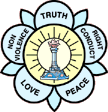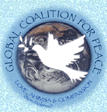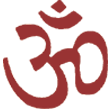 |
 |
 |
A NEW ECONOMIC PARADIGM FOR A CULTURE OF PEACE
 |
 |
 |
 |
 |
 |
|
International Conference "Ethics and the Culture of Development:
Building a Sustainable Economy," Havana, Cuba 31 May - 5 June,
1998
Dr. Juan Antonio Blanco, President and Founder , Félix Varela
Center
Four years ago I heard Paul Hawkens begin a speech by stating that the
primary deficit confronting the United States and the world at that
moment was the lack of hope. The accuracy of the statement impressed
me deeply. Today, nevertheless, I feel proud to say that this conference
has tipped the scale toward the positive side. Of course, during the
past four days nothing has changed in the reality of the world that
surrounds the walls of this hotel. But here within these walls, two
powerful forces have been unleashed, forces whose appearance precedes
every authentic change and without which hope is not possible. I am
referring to wisdom and imagination, forces which have prevailed during
our dialogue. The lack of hope to which Paul referred is rooted in the
lack of imagination and wisdom which we also suffer. I would like to
address this issue with four brief personal remarks before we close
our conference.
The first is that we are experiencing a dangerous gap between intelligence
and wisdom. We have accumulated a critical amount of knowledge, expressed
in our growing body of information and technological skill, but we have
not determined wisely how we should value these ethically and sensibly.
According to the Dictionary of the Spanish Language, the term "knowledge"
expresses the act and result of knowing, that is, of appropriating information
about something and using it intelligently. The same dictionary defines
wisdom as the expression of wise or prudent behavior based on the discernment
between good and bad. Using information "intelligently" does
not necessarily imply an ethical use of knowledge. Without ethical thinking,
without judgment between good and bad, we cannot behave in a prudent
or wise way using the new higher powers we have have acquired from technology.
We cannot use our capacities wisely. Science without wisdom leads us
to behave today as savages in a postmodern technological jungle. Lacking
wisdom, science loses its "progressive" meaning when it is
used without ethical judgment. In my judgment, the challenge for humanity
on the threshold of the third millenium is not to oppose scientific
and technological development as some ecologists suggest; rather, it
is to apply new wisdom in using science and technology intelligently
and ethically.
But today we experience a serious lack wisdom at the moment we confront this challenge. In part that is because we need new wisdom, derived from new ethical thinking. Traditional ethics has concerned itself with relationships among members of our own species. Its analysis has been marked by the degree of social responsibility towards those who are like us. But our current technological capacity obligates us to assume new responsibilities. Today we are responsible not only for our own future but also for the future of the rest of the species that inhabit the planet with us. Bioethics, which includes social and ecological responsibility, is opening the way to respond to the imperative need to base our new knowledge on new wisdom which will ensure its genuinely progressive application.
The second comment I would like to make is that new wisdom demands also
a new historical perspective. A new understanding of the difference between
the concepts of civilization and culture. Industrial civilization was
organized during the 20th century within two huge cultures: capitalism
and state socialism. In the same way that Sparta and Athens represented
distinct and antagonistic cultures in the ancient world (sharing, nevertheless,
the premise of agricultural civilization) the United States and the former
Soviet Union - capitalism and state socialism - collided in the 20th century
sharing the premise of industrial civilization. Human history's most profound
crisis today is neither socialism nor capitalism; rather, it is the premises
of civilization on which both cultures were built in modern history.
The entire world, humanity as a whole, is in the midst of transition today. We no not live in a time of changes; we are living in a change of times. We are moving toward a new technological civilization, and there are those who are trying to bring this about from the ideas of the world which we have known up to the present.
The Bible reminds us to "pour new wine into new wineskins." New wine in old wineskins will cause them to burst. There are those who are trying to pour our new technological reality into the old institutional containers which cannot contain the new without bursting. They are trying to bring forward a new techonogical civilization while remaining anchored in obsolete institutions and ideas through which both cultures - capitalism and state socialism - pursued human happiness, more or less successfully, during the past two centuries of industrial civilization.
In my judgment that is not possible. The jubilation over the disappearance of bureaucratic totalitarianism in Eastern Europe would be better served if we renewed, together, our resistance to the global totalitarianism of the market. Maximizing profits can not be the organizing principle for the cultures of the new cybernetic civilization in the same way that the totalitarian regimentation of ideas and thought could not serve as the pillar of a culture compatible with this new technological civilization. The danger now facing humanity is not technological globalization but, rather, the totalitarian transnationalization of neoliberal capitalism under the principle of maximizing profits at the cost of the environment and human beings. We need to think, to imagine new forms of organization, new cultures for the new civilization toward which we are moving. The most urgent revolution at the threshold of the third millenium is the revolution of our thinking.
These reflections bring me to my third point: our lack of imagination. Imagination implies mental exploration of alternative visions of the reality we live today. To engage imagination is to challenge the subjective walls which separate our supposedly impossible ideals from the unacceptable and dangerous reality which is presented to us as the only world possible by those who hold power in the current status quo. Politics cannot continue being the art of the possible when it tries to define as impossible the ideals of freedom, equality, and brother/sisterhood which constitute the great promise of modern life. If the joining of liberty, human solidarity, and ecological responsibility are determined to be impossible ideals, then we must demand that politics become the art of the impossible. Only by attempting the impossible will we be able to recognize the ultimate and real limits of what is possible.
To demand the impossible would be, in this case, the only way of being faithful to our human condition, which is the first and foremost loyalty to which we are bound in any society and circumstance. Today we are living in societies characterized by "I win; you lose," which we need to transform into cultures of "I win; you win also." To accomplish this goal we will need to exercise free imagination. We need to imagine a redesign of the relationships among the state, the market, and civil society. We need a new institutional landscape which will allow the right to pursue individual happiness - universally recognized since the Declaration of Independence of the thirteen British colonies in North America - without causing the unhappiness of others. During the decade of the sixties it was customary to say that imagination should gain access to power; today we know that the first duty of imagination is not to take power but to redefine it. Unless power is no longer seen as a lever of domination and, instead, comes to be understood as the potential for serving the other, nothing is served by taking it over. The history of the 20th century has dramatically proven this point.
Without freedom of thought it is not possible, in any society, for imagination
to flourish; without imagination liberty cannot be reconciled with justice,
and without justice there will be no future for anyone. But imagination
requires certain conditions in order to flourish. In my judgment, those
who suggest that the regimentation and the suppression of the free flow
of ideas is a phenomenon that can only occur in bureaucratic totalitarian
regimes are mistaken. The market is also capable of generating a repressive
cultural attitude towards every school of thought which questions the
status quo. "If CNN does not report something, it probably did not
occur." "If the news doesn't fit within the New York Times it
must not be relevant." "If the browser doesn't locate the web
page easily, it's not worth looking at." Already there are voices,
such as Le Monde Diplomatique, rising to dennounce the global subliminal
imposition of one-dimensional thinking of resigned demobilization, while
any alternative criterion is marginalized.
My fourth and final comment refers to the urgent necessity for mutual understanding and dialogue at every level: family, community, national and international. What is dialogue? Dialogue is a superior level of human communication with respect to debate and negotiation. Within a debate differing, firm and at times intransigent positions confront each other, each position trying to control what it considers the only truth possible. When the debate passes to negotiation - something which does not always occur - what generally emerges as agreement is not the result of each position reappraising each part of its beliefs but, rather, the expression of a power equation in which the stronger side has been able to impose, to a greater or lesser extent, its criteria over those of the opponent.
It frequently happens that negotiations do not reach a happy conclusion and debate often breaks down given the unwillingness of the parties to consider the possibility that the opposing argument might contain some truth. The western world seems to be amazed at the levels of intolerance and fundamentalism of the taliban of Afghanistan. But the truth is, we all, to a greater or lesser degree, carry a talib within us. There are not only islamic taliban; there are also taliban in the Chicago School of Economics, the World Bank and the International Monetary Fund, in Washington and Europe and Bejing and Havana. No modern society in the North or the South, the East or the West, has been able to avoid their presence. The intolerance of our attitudes, beliefs and behaviors is rooted in the modern concept of science. Modernity has questioned theological truths but put in their place new truths that are no less rigid and intolerant. Science came to occupy the place of ancient religions in its attempt to monopolize truth and allow the control of everyone and every natural and social process. To dialogue, on the other hand, signifies being capable of exploring without prejudice the validity of truths that are different to those we may profess in a given moment. It implies opening oneself to the possibility of reformulating our own beliefs when we find valuable elements in other criteria. To dialogue is to transcend - when necessary - one's own truth not in order to "change sides" but, rather, to construct a new truth. Rousseau's democracy -- that minorities must submit to the current criteria of the social contract forged by the majority -- is giving way today to a new concept of participatory and dialogical democracy in which minorities and their identities are respected. But if imagination is not able to flourish in societies from which the freedom of thought has been amputated, neither can dialogue prosper in societies marked by hostility and the ongoing threat to wellbeing and security.
Our conference has not constituted a "debate of ideas," nor do our agreements represent the imposition of particular criteria - as attractive as that may seem - over a minority whom we would shut out. Our meeting - and this has been the most encouraging thing during these days -- was a genuine dialogue: open, transparent, flexible, among persons from the most diverse spectrum of origins and beliefs. During these five days we have demonstrated that dialogical democracy functions effectively when there exist a minimum trust and mutual respect in the search for unity from diversity. That democratic level of communication, understanding and cooperation is also an indispensable component of a sustainable society and of a sustainable international community.
Allow me to add a coda to these comments. We live in an age of uncertainty. The only certainty at the end of this millenium is uncertainty itself. Following several centuries of supposed certainties - from the right or from the left - about the future, now the future comes to us as a question. There is no sure future - good or bad - awaiting us according to divine will or historical laws. There is, nevertheless, more than one future that is possible - good and bad - which can ensue depending on how we act today. We are accustomed to embrace ideas which assure us of the success of our cause at the end of the road. Today we know that the road itself can be closed off if an ecological catastrophe puts an end to our short adventure as a species on this planet. Today, our convictions must emanate from ethics more than from political certainties. The issue is not, as before, whether we will win or lose, as before, but that there is no decent alternative to committing ourselves to the struggle to guarantee a better future for coming generations.
This has not been a meeting of politicians but, rather, of decent persons from every geographic latitude. And decency is the force which can help politics recover the sense of ethical concern which it lacks today. That is why I am convinced that during these five days we have made an important contribution to the recovery of hope.
Thank you very much